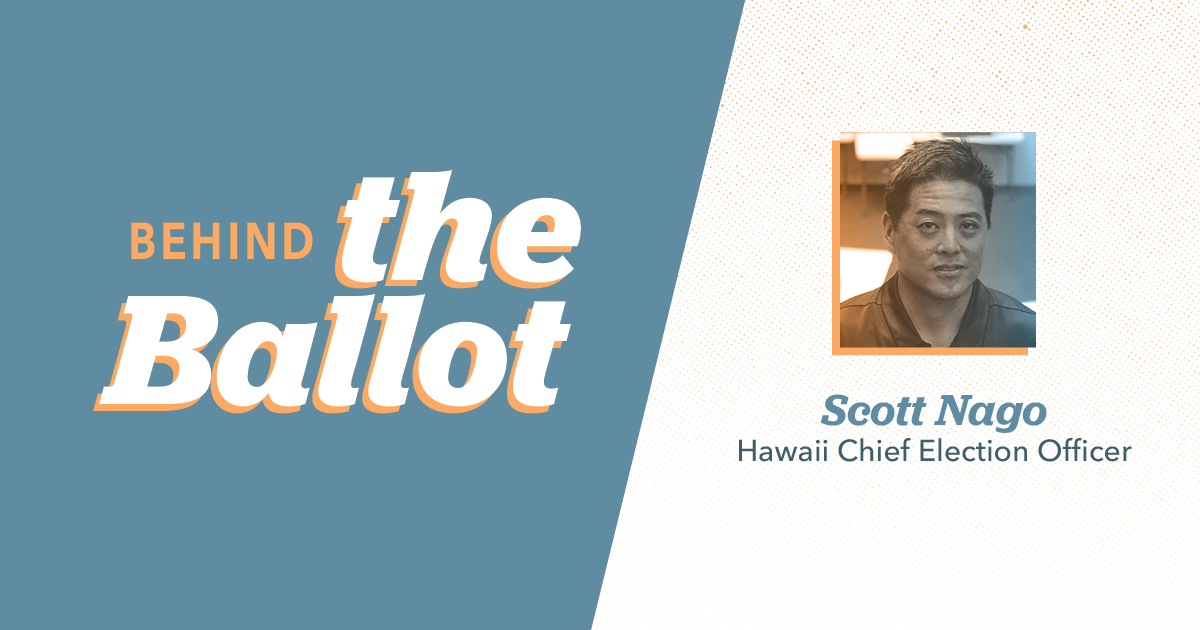
Scott Nago – Hawaii Chief Elections Officer
While COVID-19 scrambled election plans in other states, Scott Nago had an advantage — legislation signed by Hawaii Gov. David Ige in 2019 had prepared the state for all-mail elections beginning in 2020.
As chief election officer in Hawaii, Nago couldn’t have known in 2019 just how important the move to all-mail elections would become for public health, but he’d known for years it would be an important step to improve voter turnout. Some version of an all-mail voting bill had been introduced in the legislature every year since Nago started working in the state election office 1998, he said, and he was “pleasantly surprised” when it finally passed in 2019.
“It wasn’t overnight,” he said. “It was something that took a long time to get done.”
For several years, voters had already shown a preference for voting by no-excuse absentee ballot. Moving to all-mail elections was a response to voter preference, especially since voters were more than usually reluctant to go to polls because of COVID-19.
“They would have probably requested an absentee mail ballot anyway,” Nago said. “But once they found out that your ballot is automatically coming to you in the mail, all you have to do is vote it, sign it and get it back to us by the deadline — it’s really easy.”
All mail voting has streamlined the administration side of elections, too, significantly reduced the number of personnel needed and the logistics of securing polling locations.
“From a selfish point of view for an election administrator, when you have a polling place election, there’s a lot of moving parts that you just can’t control,” Nago said.
When the state had polling place elections, Nago needed to reserve 250 polling places statewide, booked two years in advance. He had to recruit people to open and prepare the polling places in addition to recruiting poll workers. Each of these elements was a potential point of failure.
“All it takes is one person to oversleep or get sick, and we can’t open on time, and we have to scramble to send somebody out there with a key or wake up a principal of a school or a custodian just to get access to the polling place to open it up on election day,” he said. “A lot of that logistical headache is gone with the vote by mail.”
Since Nago started working in the state election office, the state has implemented automatic voter registration, conducted two elections by mail and offered online registration. The challenge now is simply getting the word out. One other point Nago wants to spread the word about — election officials everywhere are doing their best for voters.
“In elections, there’s only one answer — the right answer,” he said.
“There’s no interpretation. You have to follow the law. And that’s what we’re going to do because we want to make it fair as possible. We don’t want to be talked about, as the election officials. We don’t want the story to be about us. We want it to be about candidates at the end of the night.”


